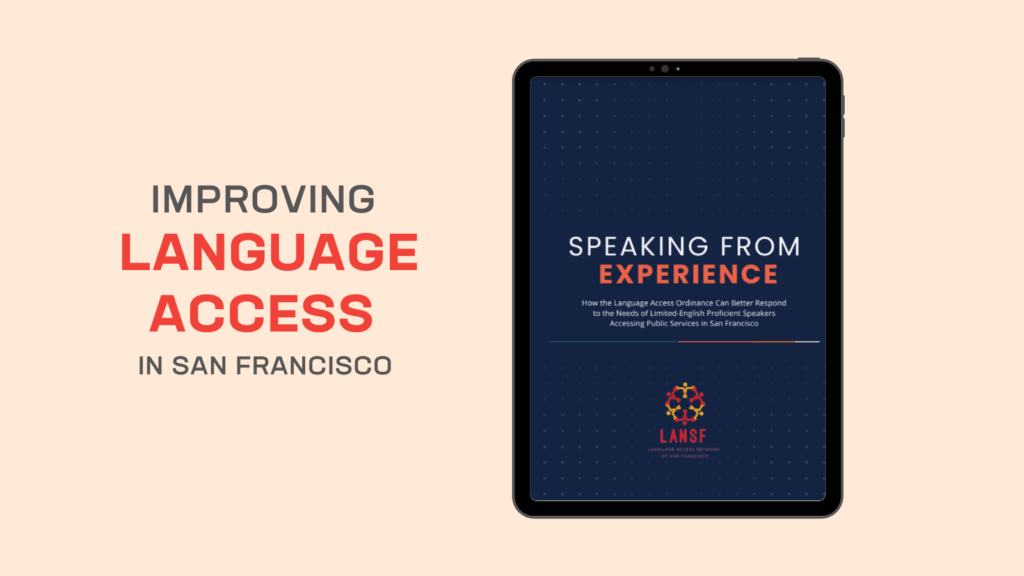
Communities are strongest when everyone is able to participate in political, economic, and cultural life. In cities like San Francisco, with a growing population of immigrants, language justice is essential in defending the rights of limited English proficient (LEP) individuals to access services like emergency assistance or public transportation. Since 2009, the Language Access Ordinance (LAO) has asserted the rights of LEP communities to request services in their own language.
Even so, a new community assessment conducted by the Language Access Network of San Francisco (LANSF) provides new insight into how the LAO functions and to what extent it meets the ever-changing needs of LEP communities.
LANSF is a nonprofit coalition, co-founded by seven immigrant-serving organizations including CAA. With the support of the Office of Civic Engagement and Immigrant Affairs (OCEIA), LANSF educates LEP communities on language rights as defined by the LAO. It also serves as a liaison between government stakeholders and the communities they serve, bringing City Departments in line with best practices in language access and uplifting the concerns of LEP communities.
Drawing from a combination of compliance data, spot checks, and community interviews, the LANSF Community Assessment provides a comprehensive view of how LEP communities interact with language services at different City Departments.
Overall, the assessment concluded, San Francisco has made consistent progress in enforcing language access. Now more than ever, individuals can access the public information and services to which all of us are entitled, no matter what language we speak. However, the assessment also makes clear that further reforms are needed.
To facilitate access to higher-quality language services, our coalition recommends the following changes to the LAO:
- Strengthen enforcement strategies. In its current form, the ordinance does not spell out consequences for language access violations. To increase compliance, the coalition recommends new systems and structures to increase transparency and accountability across participating departments.
- Increase community engagement. This means engaging community stakeholders, including LEP audiences, in annual planning to ensure that their voices are heard and their needs are met. The coalition also recommends new provisions for non-threshold languages (like Arabic, Vietnamese, and Tigrinya) that are not accounted for in the current ordinance.
At CAA, we view language access as an essential human right. We are proud to live in a place like San Francisco that continues to lead the nation in language services. We are also hopeful that the LANSF Community Assessment can continue to build upon the LAO and create a world where immigrants feel a sense of ownership and belonging in accessing public services and engaging in public life.
“CAA is proud to partner with the other members of LANSF to expand access to public services and resources to all of our neighbors, no matter what language they speak.”
Click here to read the LANSF Community Assessment, which is available in six different languages including English and Chinese. Click here to learn more about the Language Access Network.



